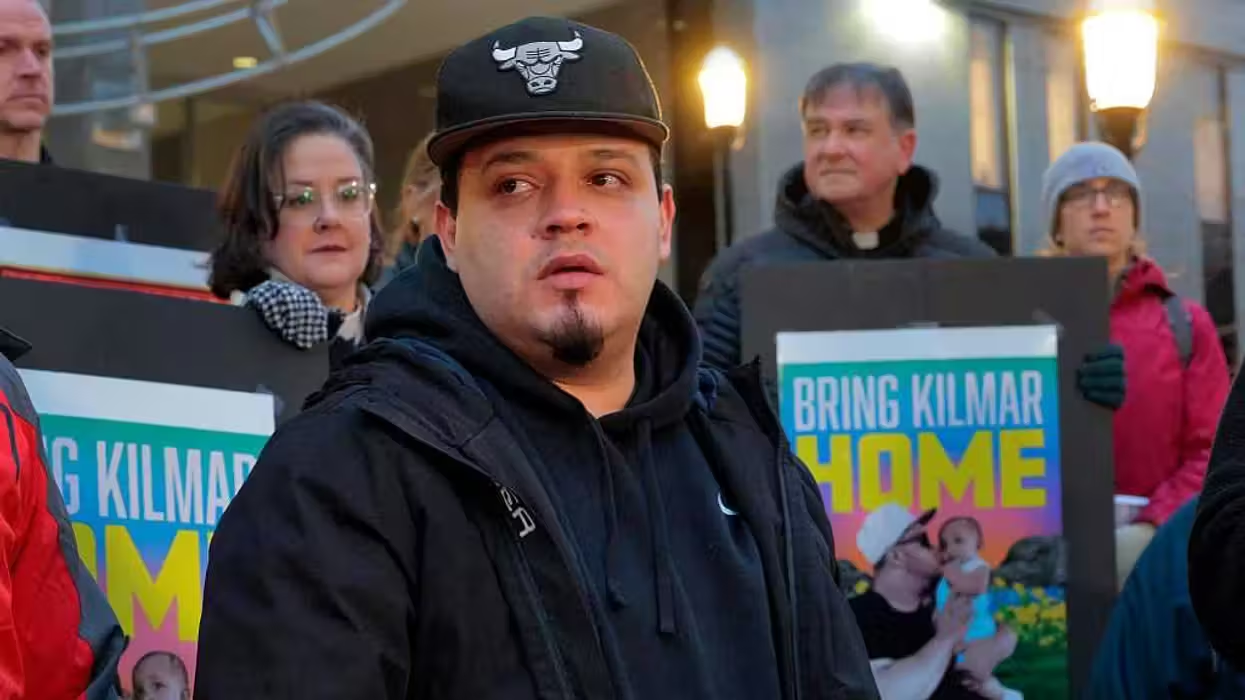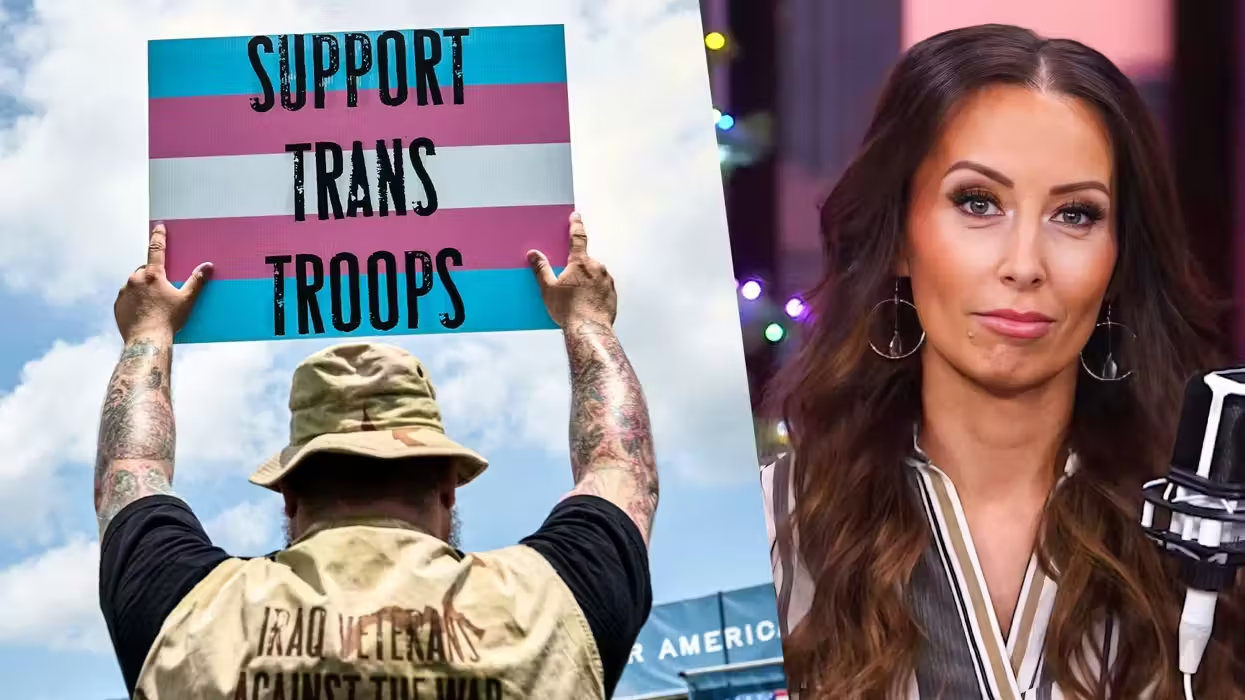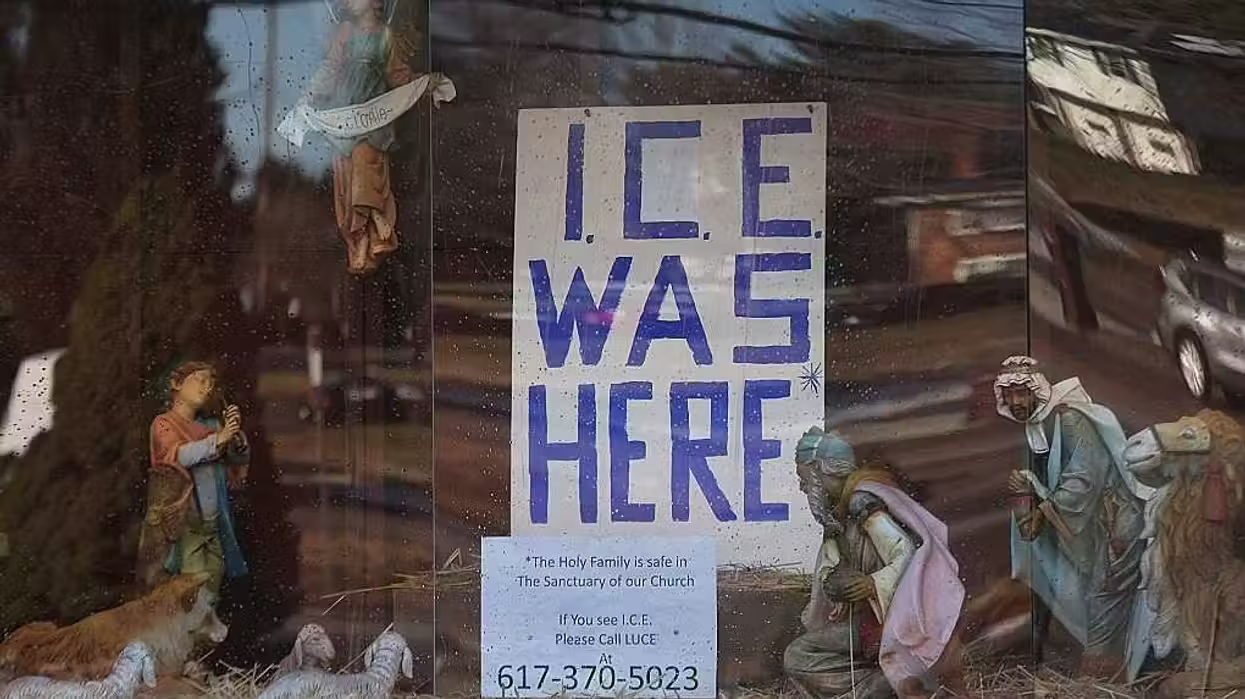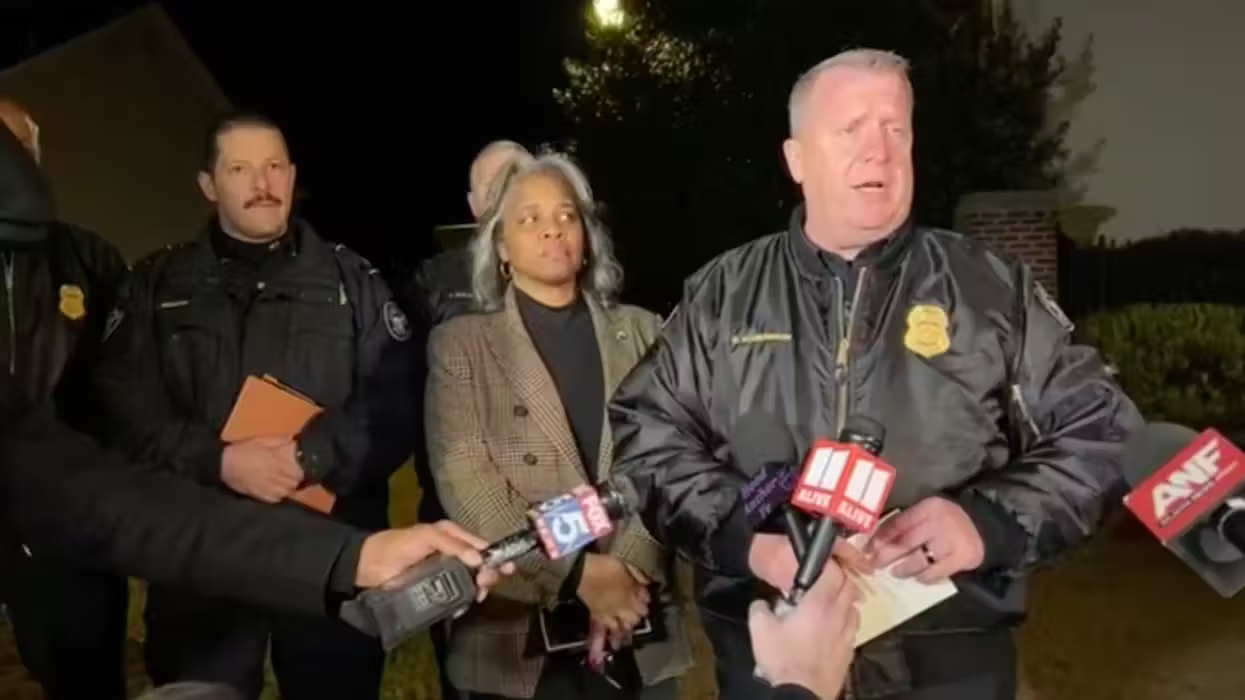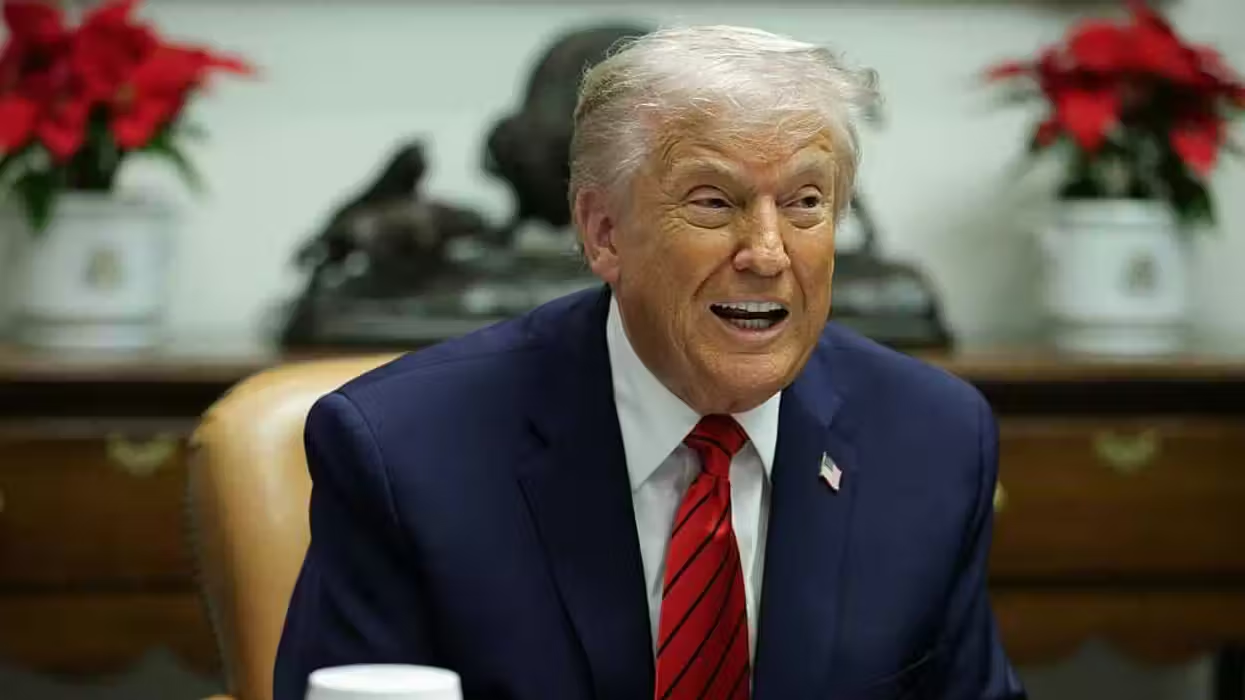The suits seen lately on health workers helping Ebola patients — personal protective equipment suits — are in short supply these days, despite an increase in production on the part of manufacturers, NPR reported.
The whole ensemble — suit, gloves, mask and goggles — help protect workers from coming into contact with contagious bodily fluids that a can transmit the Ebola virus.
 A volunteer doctor who will travel to West Africa to help care for Ebola patients takes off safety glasses during training offered by the German Red Cross (DRK) on October 7, 2014 in Wuerzburg, Germany. Over 1,200 people across Germany have responded to a DRK call for volunteers, while the German armed forces, the Bundeswehr, has also asked for volunteers from its own ranks. Countries around the world are taking increasing precautions and committing resources in the battle against the deadly virus as the number of victims continues to climb. (Timm Schamberger/Getty Images)
A volunteer doctor who will travel to West Africa to help care for Ebola patients takes off safety glasses during training offered by the German Red Cross (DRK) on October 7, 2014 in Wuerzburg, Germany. Over 1,200 people across Germany have responded to a DRK call for volunteers, while the German armed forces, the Bundeswehr, has also asked for volunteers from its own ranks. Countries around the world are taking increasing precautions and committing resources in the battle against the deadly virus as the number of victims continues to climb. (Timm Schamberger/Getty Images)
In West Africa where the historic outbreak continues to grow in number of infections and deaths, millions of PPEs are needed.
“We now estimate that we need 3 million [PPEs] for the duration of the outbreak,” Dan Epstein, a representative with the World Health Organization, told International Business Times. “I know that we’ve shipped on the order of 400,000 or something like that. It’s less than we need because of the logistics also of distributing it, getting it to air, and getting it to all the Ebola treatment centers.”
 Aid workers and doctors transfer Manuel Garcia Viejo, a Spanish priest who was diagnosed with the Ebola virus while working in Sierra Leone, from a military plane to an ambulance as he leaves the Torrejon de Ardoz military airbase, near Madrid, Spain. The priest ended up dying on Sept. 25 but a nurse who helped care for him more recently tested positive for the virus. (AP/Spanish Defense Ministry, )
Aid workers and doctors transfer Manuel Garcia Viejo, a Spanish priest who was diagnosed with the Ebola virus while working in Sierra Leone, from a military plane to an ambulance as he leaves the Torrejon de Ardoz military airbase, near Madrid, Spain. The priest ended up dying on Sept. 25 but a nurse who helped care for him more recently tested positive for the virus. (AP/Spanish Defense Ministry, )
DuPont Protection Technologies, one of the largest manufacturers of PPEs, told IBT that it tripled production of products that health workers facing Ebola might need.
“We have also worked hard to shift product stocks geographically and made available a broader range of styles suitable for various treatment levels," Sandra James with Dupont told IBT.
While protective gear is in high demand, proper sanitizing equipment and waste management companies are being called upon as well. "Little Moe," for example, is a robot that uses UV light to kill the DNA of viruses and bacteria. The robot is already in about 250 hospitals across the nation, according to KENS-TV, and one of them, the news station reported, is the Dallas hospital where the first U.S. diagnosed Ebola patient is being treated.
The robot can rid a hospital room of biological contaminants within two minutes, KENS reported.
Watch the news station's report about "Little Moe":
Here is some other Ebola news for your Tuesday morning:
- Quarantine of those close to Spanish nurse: The husband of the Spanish nurse who has tested positive for the Ebola virus — the first known transmission outside West Africa — has been placed under quarantine. Public Health Director Mercedes Vinuesa told Parliament on Tuesday that authorities were drawing up a list of other people who may have had contact with the nurse so that they can be monitored.
- Stepdaughter of Dallas Ebola patient given green light to work: According to the U.K.'s Daily Mail, Youngor Jallah, the stepdaughter of Thomas Duncan, a Liberian man who tested positive for Ebola and is in isolated in a Texas hospital, said health officials have given her the all-clear to head back to work. Jallah was one of the few people in close contact with Duncan who was ordered under quarantine while officials evaluated the situation. Jallah, a nursing assistant, told the Daily Mail she does not intend to return to work yet or send her child back to school before Oct. 17.
- U.S. patient gets experimental drug: According to NPR, Duncan received Brincidofovir, an experiment drug that the Food and Drug Administration approved in the Ebola emergency, but it has not even been tested on animals yet. NPR reported that Chimerix, the drug's manufacturer, has tested it against Ebola in test tube with positive results.
—
The Associated Press contributed to this report.

 A volunteer doctor who will travel to West Africa to help care for Ebola patients takes off safety glasses during training offered by the German Red Cross (DRK) on October 7, 2014 in Wuerzburg, Germany. Over 1,200 people across Germany have responded to a DRK call for volunteers, while the German armed forces, the Bundeswehr, has also asked for volunteers from its own ranks. Countries around the world are taking increasing precautions and committing resources in the battle against the deadly virus as the number of victims continues to climb. (Timm Schamberger/Getty Images)
A volunteer doctor who will travel to West Africa to help care for Ebola patients takes off safety glasses during training offered by the German Red Cross (DRK) on October 7, 2014 in Wuerzburg, Germany. Over 1,200 people across Germany have responded to a DRK call for volunteers, while the German armed forces, the Bundeswehr, has also asked for volunteers from its own ranks. Countries around the world are taking increasing precautions and committing resources in the battle against the deadly virus as the number of victims continues to climb. (Timm Schamberger/Getty Images)


